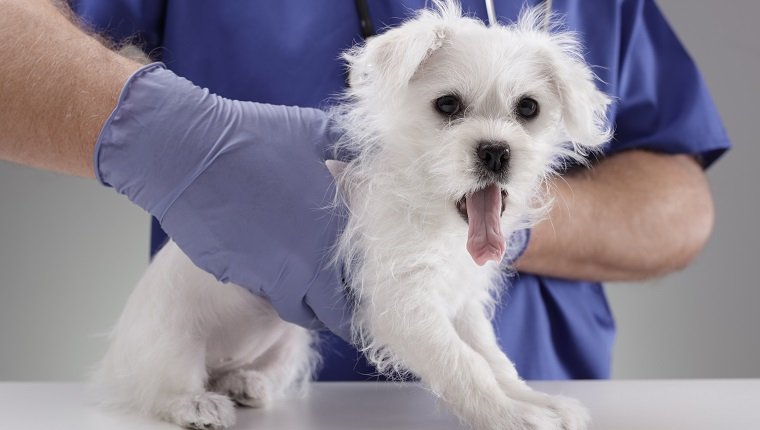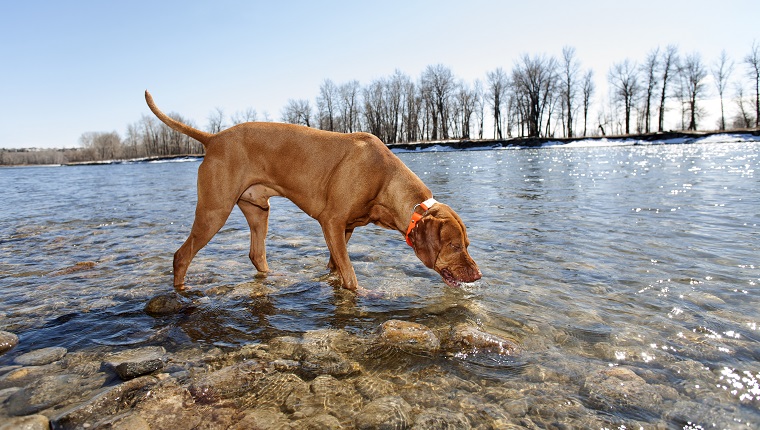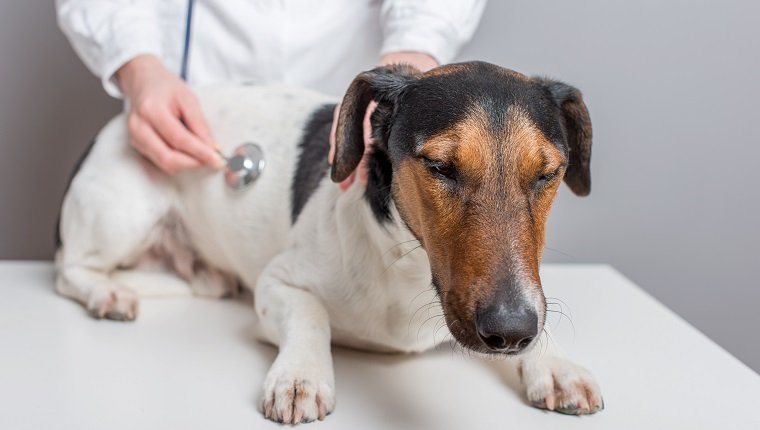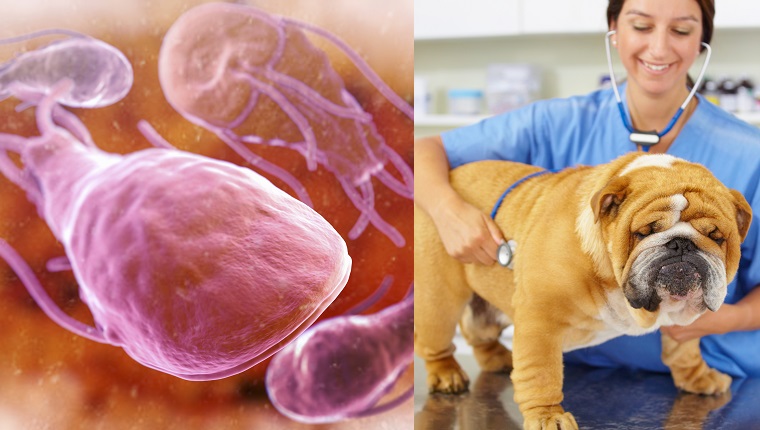Giardia is a parasite that causes an infection known as giardiasis in the gastrointestinal tracts of dogs. It spreads when dogs ingest microscopic cysts — offspring of the parasite — found in the feces of infected animals.
This can cause severe gastrointestinal problems like vomiting and diarrhea. However, many infected dogs show no signs of giardiasis at all. If your dog shows symptoms of infection, then you must consult your veterinarian so they can form a prior diagnosis.
Even if your dog doesn’t show signs of a giardia infection, it’s often recommended that you get a fecal sample test to check for giardiasis or other infections.
Here’s what you should know about the symptoms, causes, and treatments for giardia infection in dogs.
Symptoms Of Giardia In Dogs

Many dogs show no symptoms at all of a giardia infection even though giardiasis is present, and infected animals can still transmit the infection through their stool.
Other dogs will show symptoms, though these can range from mild to severe.
If your dog is showing the following symptoms, then you should consult your vet so that they can test for giardiasis and prescribe treatment:
- Foul-smelling diarrhea
- Blood or mucus in stool
- Gas
- Nausea
- Vomiting
- Weight loss
- Appetite loss
- Abdominal Pain
- Lethargy
Though the infection is not often fatal in dogs whose immune systems are healthy and uncompromised, it can be a problem for very young or old dogs.
Severe vomiting and diarrhea may also lead to dehydration, so it is important that you get to your vet for treatment if your dog shows these symptoms.
Causes Of Giardia In Dogs

Giardia infection in dogs is spread through microscopic cysts, which are the offspring of the parasite. These cysts are transmitted in the fecal matter of infected animals.
Giardiasis can result from direct contact with the feces of an infected animal, or it can result from sniffing or licking infected ground or water contaminated by fecal matter.
Giardia is more common in areas where there’s a high population of animals that can transmit the condition, such as kennels, dog parks, or animal shelters. The parasite is able to last longer in cool, moist areas, which makes it different from most infectious organisms.
It can live for months under the right conditions and is very resistant to the environment. You should always keep your dog away from the feces of other animals, even in cold climates when snow can cover up and hide the feces of infected animals.
Veterinary Treatments

Giardia infections are usually treated with medications such as fenbendazole and metronidazole, which are usually given over a course of three to ten days. Vets often further recommend that dogs with giardiasis get regular baths to remove giardia cysts from the fur.
Any dog beds, bowls, toys, or things the infected dog came into contact with should also be washed thoroughly. This will help avoid the spread of infection and to prevent it from recurring.
In cases where diarrhea and vomiting have brought on dehydration, a vet may hospitalize the dog and use intravenous fluids to re-hydrate and replace electrolytes. Most dogs make a full recovery without issue.
Has your dog ever had giardiasis? What was the treatment? Let us know in the comments below!









